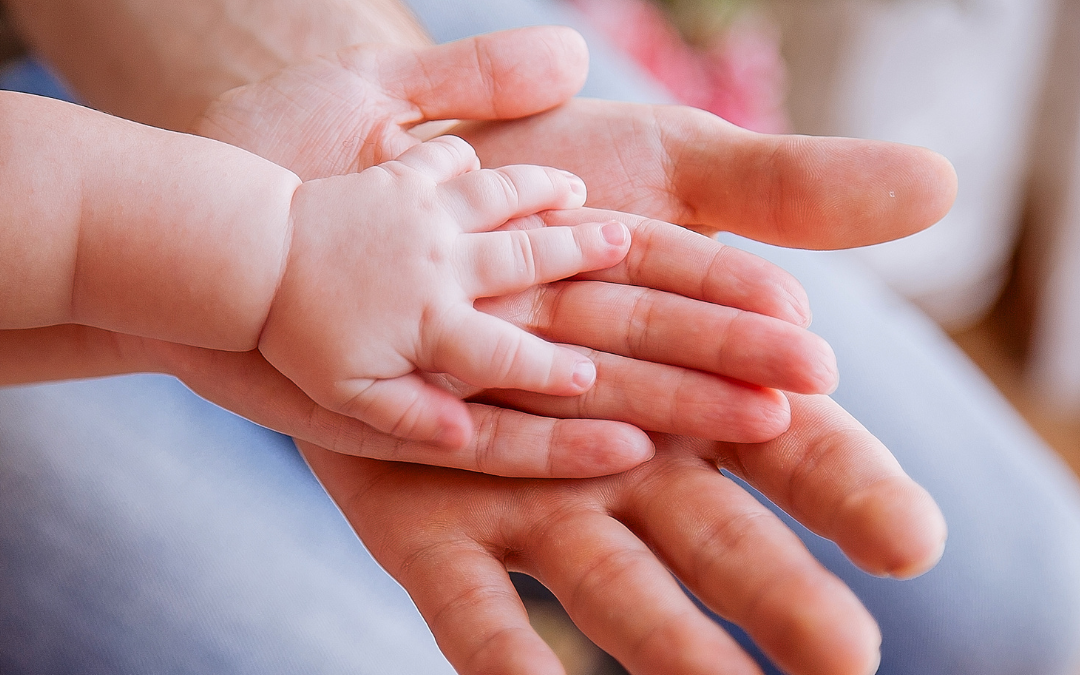Infant Mental Health Awareness Week is an opportunity and reminder to discuss the importance of babies’ mental health, as well as some of the issues that affect it.
What is infant mental health?
Infant mental health describes a baby’s capacity to experience, regulate, and express emotions and form close and secure relationships. It underpins the social and emotional wellbeing and development of children in the earliest years of life. Infant mental health is linked to a range of later outcomes such as:
- Learning and behaviour
- Social and emotional development
- Physical and mental health and wellbeing
- Healthy relationships
The theme this year is ‘Understanding Early Trauma’
It is a commonly held belief that babies and young children are immune to the negative impacts of trauma, but while this is not only false, this group may be the most vulnerable in terms of experiencing adverse effects and outcomes as a result of a traumatic experience.
Brain development in infancy and early childhood lays the foundation for all future development, including mental health. Experiencing trauma, such as neglect or exposure to domestic abuse, in the earliest years can have a significant impact on brain development, with serious and lasting consequences that can create difficulties for the child into adolescence and adulthood.
Fortunately, the impacts of early trauma are not inevitable; secure relationships with parents and carers can reduce stress caused by trauma and limit the long term impact it has on the baby’s development.
What happens when a child experiences trauma?
When a child experiences a traumatic event, their sense of safety and security is challenged. This can affect a young child’s ability to form secure and caring relationships. A traumatic event can also impact on the family, bringing added stress to the capacity of parents/carers to provide a stable and nurturing relationship.
Why are relationships so important?
The quality and stability of a child’s relationships with their primary caregivers are considered the most influential factors in a child’s life. In these relationships children learn to trust, learn to manage their emotions, and learn about their world and themselves. Secure, responsive and caring relationships have a lasting impact on the child’s mental health and wellbeing, self-confidence, learning, and ability to relate to others.
When a child gets what they need from their caregiver, like a smile, a touch or a cuddle, they feel the world is a safe place to play, learn and explore. This lays the foundation for their development and wellbeing throughout childhood.
A baby’s brain grows and develops as it is stimulated (via interaction). Normally, when humans feel threatened, our bodies release stress hormones and we go into “fight” or “flight”. However, babies can’t fight and they can’t flee, so they communicate their distress by crying. When caregivers respond to their cries and meet the baby’s needs, neuronal pathways are strengthened and the baby learns how to get their needs met, both physically and emotionally. Over time, responsive caregiving builds the pathways in babies’ brains for self-regulation when they are older. It takes many repeated experiences of actively being calmed over years for a child to start actively calming themselves even in small ways.
However, when a baby’s cries are met with anger/abuse or not usually responded to, their brain is flooded with cortisol and triggers a “freeze” or “defeat” response. In normal amounts cortisol is not harmful, but if a baby is exposed for too long or too often to stressful situations (such as being left to cry) the brain becomes flooded with cortisol, which can cause permanent changes in the stress responses of babies’ developing brains. These changes then affect memory, attention, and emotion, and can trigger an increased response to stress throughout life, including a predisposition to later anxiety and depressive disorders.
These babies eventually stop crying not because they are no longer distressed, but because their nervous system shuts down the emotional pain and the striving to reach out.
Summary
Promoting babies’ emotional wellbeing and providing support to families experiencing difficulties in early relationships can help prevent mental health difficulties in the future.
Supporting parents to provide their child with a sense of safety and support, while also positively managing their own responses to the event, will assist both the child’s and family’s recovery.
Resources
Read more about Infant Mental Health here
Read more about bonding with your newborn here
Access resources help and support adults and children before, during and after a disaster or traumatic event here
Written by Hilary Morgendorffer
Clinical Psychologist








Recent Comments